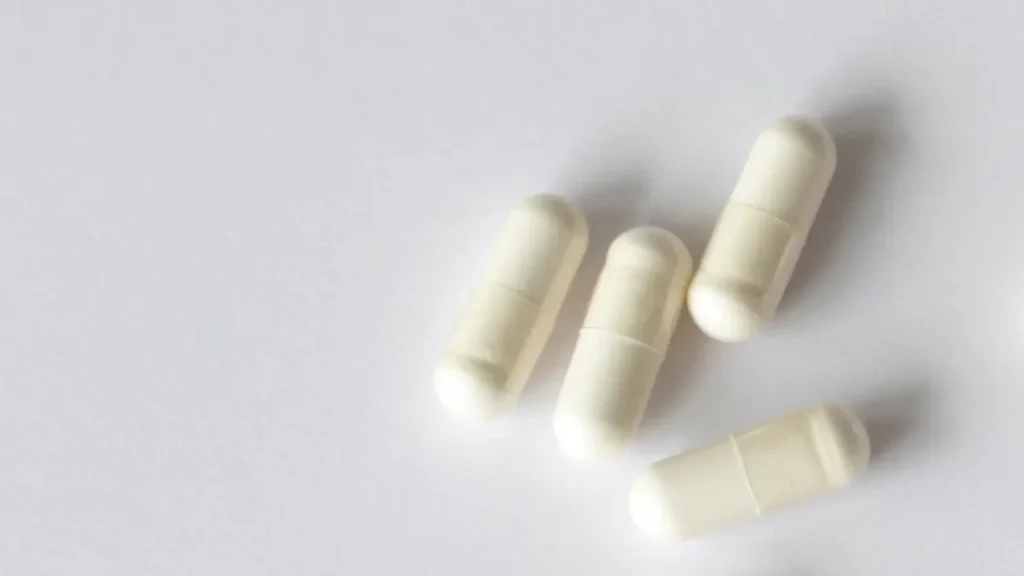The flowering plant known as Shepherd’s Purse (Capsella bursa-pastoris) is a member of the Brassicaceae family and is well-known for its unusual heart-shaped seed pods. This herb originates from Asia Minor and Eastern Europe and has spread around the world and become ingrained in many folk medicinal practices. Examining Shepherd’s Purse’s chemical makeup, possible health advantages, ideal dosage, adverse effects, and interactions with other drugs is essential as we investigate this nootropic supplement. This thorough examination seeks to provide guidance to individuals who wish to use Shepherd’s Purse in a responsible manner to improve brain health.
You May Also Like:
CBD for Concentration: The Productivity Hack for Energy and Focus
Sunmed CBD vs. Partnered Process CBD: Finding the Best CBD for Sleep
Shepherd’s Purse: Benefits, Dosage, Side Effects, Drug Interactions, and Other Important Information is an original (NootropicsPlanet) article.
Nature of Shepherd’s Purse
The Shepherd’s Purse, also known as Capsella bursa-pastoris, is a small, annual, or occasionally biennial plant that is distinguished by its heart-shaped seed pods and rosette of leaves on thin stalks bearing tiny white flowers. This herb which is native to Asia Minor and Eastern Europe, has adapted to many different temperatures and thrives on disturbed soils that are frequently found in fields, gardens, and wayside places. Its widespread distribution over various habitats attests to its adaptability and rapidity of dissemination.
The plant’s name, Shepherd’s Purse, is named after the shape of the seed pods which resemble the bags that the shepherds used to carry. It is a plant of interest in both folk and contemporary herbal therapies because of its wide-range medicinal qualities.
Health Benefits of Shepherd’s Purse
- Cognitive Enhancement: Theoretical underpinnings suggest that the antioxidative properties of Shepherd’s Purse could mitigate oxidative stress in the brain, potentially preserving cognitive function. However, direct evidence supporting its use as a cognitive enhancer is sparse.
- Anti-inflammatory Effects: Shepherd’s Purse has been traditionally used for its anti-inflammatory properties. Given the link between inflammation and cognitive decline, these effects may indirectly benefit cognitive health.
- Hemostatic Properties: The plant is historically renowned for its ability to stop bleeding, both internally and externally. This hemostatic ability, while not directly related to cognition, could have implications for conditions affecting brain health, such as stroke.
- Neuroprotection: The bioactive compounds in Shepherd’s Purse, particularly flavonoids, may offer neuroprotective benefits. They could potentially safeguard neurons from damage, preserving cognitive function by reducing oxidative stress and inflammation.
- Stress Response: Anecdotal evidence suggests that Shepherd’s Purse might have adaptogenic properties such as helping the body to manage stress. Given the impact of chronic stress on cognitive health, this could indirectly support cognitive functions by mitigating the negative effects of stress on the brain.

Chemistry of Shepherd’s Purse
Shepherd’s Purse contains several key bioactive compounds that contribute to its medicinal properties. The primary constituents include:
- Flavonoids: These compounds exhibit antioxidative properties, which can protect cells from oxidative stress-induced damage. Oxidative stress is implicated in the aging process and various neurodegenerative conditions which suggests that Shepherd’s Purse could be involved in mechanisms that support cognitive health.
- Glucosinolates: Known for their presence in cruciferous vegetables, these sulfur-containing compounds can influence detoxification processes and may have neuroprotective effects. They are hydrolyzed into isothiocyanates, which have been studied for their anti-inflammatory and anticancer properties.
- Saponins: These compounds have been shown to exhibit various pharmacological effects, including anti-inflammatory and immune-modulatory activities. Their role in Shepherd’s Purse might contribute to its overall health benefits, potentially affecting cognitive functions through systemic inflammation reduction.
- Tannins and Polysaccharides: Both tannins and polysaccharides contribute to the plant’s astringent and hemostatic (bleeding control) properties. While not directly related to cognitive enhancement, these compounds underscore the plant’s therapeutic versatility.
Physiological Mechanism of Action with Shepherd’s Purse
The physiological mechanisms by which Shepherd’s Purse exerts its effects on the body and brain are multifaceted:
- Anti-inflammatory Action: Chronic inflammation is a known factor in cognitive decline. The anti-inflammatory properties of Shepherd’s Purse, mediated by its flavonoid content, could theoretically support cognitive health by mitigating inflammation.
- Antioxidative Pathways: The antioxidative flavonoids in Shepherd’s Purse can neutralize free radicals, reducing oxidative stress. Since oxidative stress is linked to neurodegenerative diseases and cognitive aging, the antioxidative properties of Shepherd’s Purse may confer neuroprotective benefits.
- Hemostatic Effects: While not directly related to cognition, the ability of Shepherd’s Purse to promote blood clotting could have indirect implications for brain health, particularly in conditions that involve bleeding or vascular integrity.

Optimal Dosage of Shepherd’s Purse
Depending on whether Shepherd’s Purse is consumed as a tea, tincture, or pill, the ideal dosage differs. There isn’t a dosage for cognitive enhancement that is generally accepted because there aren’t enough clinical trials to prove its efficacy. A broad range of probable dosages is suggested by traditional use and sparse clinical investigations. However, individuals should speak with healthcare providers to identify the right amount for their individual needs.
Side Effects of Shepherd’s Purse
In moderation, Shepherd’s Purse is usually regarded as safe. Nevertheless, allergic responses, gastrointestinal problems, and hypotension are possible adverse effects. Shepherd’s Purse should be used carefully by anyone with bleeding disorders or those taking anticoagulant drugs because of its potential to affect blood coagulation.
Potential Substance Interactions with Shepherd’s Purse
Shepherd’s Purse’s hemostatic properties prompt questions regarding potential interactions with anticoagulant and antiplatelet medications, including aspirin and warfarin. The effects of these medications may be negated by concurrent use, which increases the risk of clotting. Its possible effects on blood pressure may call for caution when combined with antihypertensive medications.

Best Responsible Use of Shepherd’s Purse
Given the limited clinical research on Shepherd’s Purse as a nootropic, its use should be approached with caution. Individuals interested in exploring its cognitive enhancement potential should prioritize the following guidelines:
- Consultation with Healthcare Providers: Before integrating Shepherd’s Purse into one’s regimen, consulting with a healthcare professional is crucial, especially if you have any preexisting conditions or those on medication.
- Start with Low Dosages: Beginning with lower doses and gradually increasing as needed can help mitigate potential side effects and identify the lowest effective dose.
- Monitoring for Adverse Effects: Users should be vigilant for any signs of adverse reactions, particularly those related to bleeding and blood pressure.
- Quality Control: Selecting high-quality supplements from reputable sources is essential to ensure safety and efficacy.
Shepherd’s Purse:
Conclusion
Shepherd’s purse as mentioned in the article is named as such because of the shape of the seed. This plant can be found in many parts of the world. It is believed to be an efficient nootropic supplement for its cognitive enhancement potential, anti-inflammatory effects, and some neuroprotective effects. However, scientific evidence supporting these claims is limited, and more research is needed to better understand the efficacy and safety of shepherd’s purse supplements. Its ability to improve cognitive skills stems from its antioxidative properties that mitigate oxidative stress from the brain.
The key bioactive compounds found in this plant are flavonoids, glucosinolates, saponins, and also tannins, and polysaccharides. To recap, you must consult with a healthcare provider to ensure it’s appropriate for your individual needs. Shepherd should be used with caution especially users with bleeding disorders or who are taking any anticoagulant drugs.

References:
- Shepherd’s Purse: Uses and Safety. Retrieved from:https://www.verywellhealth.com/shepherds-purse-uses-and-safety-8387432
- Shepherd’S Purse – Uses, Side Effects, and More. Retrieved from: https://www.webmd.com/vitamins/ai/ingredientmono-51/shepherds-purse
- Anti-Inflammatory and Anti-Superbacterial Properties of Sulforaphane from Shepherd’s Purse. Retrieved from: https://www.ncbi.nlm.nih.gov/pmc/articles/PMC3951821/
- Shepherd’s Purse Polyphenols Exert Its Anti-Inflammatory and Antioxidative Effects Associated with Suppressing MAPK and NF-κB Pathways and Heme Oxygenase-1 Activation. Retrieved from: https://www.ncbi.nlm.nih.gov/pmc/articles/PMC6348798/
Important Note: The information contained in this article is for general informational purposes only, and should not be construed as health or medical advice, nor is it intended to diagnose, prevent, treat, or cure any disease or health condition. Before embarking on any diet, fitness regimen, or program of nutritional supplementation, it is advisable to consult your healthcare professional in order to determine its safety and probable efficacy in terms of your individual state of health.
Regarding Nutritional Supplements Or Other Non-Prescription Health Products: If any nutritional supplements or other non-prescription health products are mentioned in the foregoing article, any claims or statements made about them have not been evaluated by the U.S. Food and Drug Administration, and such nutritional supplements or other health products are not intended to diagnose, treat, cure, or prevent any disease.


